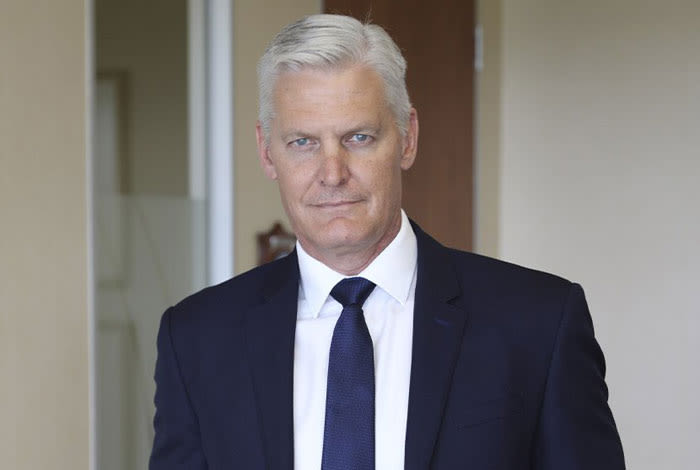
So what is the worst job in the world? There are a surprisingly large number of contenders.
The Oxford English Dictionary incurred the wrath of the worlds’ biggest fast-food chain in 2001 when it included for the first time a single word whose meaning: “low-paid job with few prospects” was defined as “McJob”. Mc Donald’s was furious- defending its role in many societies as creating jobs and offering many young people their first taste and discipline of exchanging labour for money. The word however stuck and the Collins dictionary added it to its lexicon in 2007.
Turns out, few people are lucky enough to love their jobs.
Most do the work they do because it’s the means to an end, either to pay bills or a step toward a better future. Far too many people spend their lives working looking forward to the freedom of the end of the day, the week or their annual holiday all the way to retirement.
How tragic.
If you Google: “worst jobs in the world,” it throws up some delightful vocations from the thankless stress of telemarketing to the often-abusive environment endured by many cleaners, or the dangers facing truck drivers or presently, Russian infantrymen.
Customer service agents, abattoir workers and sewer cleaners too need remarkable resolve to get out of bed daily with a spring in their step. Never mind those who work long hours in many of the underfunded public healthcare systems of the world, not mention the ever-calm primary school teacher whose job we now appreciate more than ever having been cast briefly into the cauldron of home-based education during the pandemic.
There are few though right now that match the sheer misery than that of Eskom CEO. I caught up with the incumbent Andre de Ruyter who leaves office at the end of March.
For him, a day that cannot come soon enough.
De Ruyter who along with Charlize Theron and Christo Wiese has the dubious honour of having interviews with me interrupted by (their) yappy dogs, is fed up trying to repair a depleted electricity provider while trying to keep multiple stakeholders happy and navigating the minefield of South African politics.
He joined The Money Show this week to reflect on the state of the grid and his attempts to restore its capacity. Was there any circumstance under which he would extend his stay?
“No,” was the abrupt answer.
Three years into the job and hobbled by persistent political tomfoolery, a massive debt burden and when it came to it; no support from the very top when it came to battling allegations amounting to treason by Energy Minister Gwede Mantashe, he’s fed up.
And that is forgetting an attempt on his life, allegedly in a botched cyanide poisoning attempt in December.
Who would even want the job?
Other than declare a state of disaster which gave the president a potentially positive talking point in his State of the Nation address last week, the announcement that there would be a minister of electricity, yet to be identified, and a new CEO soon for the broken utility, little has been done to make the job attractive. Indeed the president appears now to have postponed an urgently required cabinet reshuffle by at least a week until after the budget.
One can only hope that he has the adage: “What got us to where we are will not get us to where we need to be,” as he considers his choices. Government needs to look more broadly than its own denuded ranks for someone with the requisite skills, integrity and resolve to see the job through.
The CEO office at Eskom is littered with the shattered ambitions of 11 heads in as many years. The next one needs staying power in a fraught enterprise to take it on.
To be fair to anyone putting their hand up for job, as tough as it’s likely to be, it’s not the same as being a pet-food taster, yes, that’s correct nor is it as grim as having to clean those portaloos after massive concerts and sporting events.
Number 16 on the “worst-jobs” list I found: “Crime scene cleaner.” These are specialists who move in to clear up the gore after a murder.
In some respects the Eskom CEO job is terrible because it’s a combination of so many of the worlds’ worst jobs.
The current Eskom CEO has done his best to clean up the crime scene that is Eskom but without adequate police support and an apparent lack of political will to shut down cartels holding the utility to ransom. He has spent an inordinate amount of time cleaning up other people’s crap and there is more yet for his successor to deal with. Much of his time is spent explaining with the patience of a primary school teacher why the grid is in the mess that it is in only to be met with howls of derision. Like the call centre workers who constantly take abuse from faceless members of the public fed up with cold calls, the CEO of Eskom is constantly in the line of fire for issues that predate his tenure and are now beyond his control, and like the pet food taster, he has to be incredibly wary of what he ingests at work as he simply cannot trust the environment in which he works.
Practically speaking, his successor will be the manager of a declining asset. Eskom is not in a financial position to buy or build power and will simply be in place to watch its reason for existence evaporate as private sector providers seize the gap left by a corrupt and incapable state.
Who seriously wants that on their CV?
Image: Eskom CEO Andre de Ruyter. Picture: @Eskom_SA/Twitter



